School of Art - Masters Program Options
The following programs include Masters program options:
Master of Photography
Master of Fine Art
MA (Arts Management)
MA (Art in Public Space)
On this page you will find information about these postgraduate program options, as well as postgraduate University Electives.
Please note that offerings can be subject to change.
To add a University Elective in Enrolment Online, select the relevant Term, choose the 'Class Search' tab, and search for the name or course code of the course you are interested in.
For more information about a course, please contact the Offering Coordinator.
Please note: although we would like to offer all of the courses below, courses are subject to viability and may not run if numbers are too low.
Course Information
2022 Masters Program Options
Semester 1 - Masters Program Options
- OART1067: Introduction to Curating Contemporary Art
- VART3614: Masters Symposium (Previously Speaking Critically) *CANCELLED*
- VART3616: Critical Frameworks B
- VART3638: Digital Imaging Strategies
- VART3640: Internship
- VART3709: Fieldwork *Re-scheduled Sem 2*
- VART3711: Themes in Contemporary Creative Practice A
- VART3713: Themes in Contemporary Creative Practice B
- VART3717: Cultural Planning and Evaluation (cancelled)
- VART3741: Studio Skills Specialisation
Semester 2 - Masters Program Options
- OART1066: Arts Management Fundamentals
- VART3616: Critical Frameworks B
- VART3640: Internship
- VART3709: Fieldwork
- VART3707: Applied Industry Engagement *CANCELLED*
- VART3711: Themes in Contemporary Creative Practice A
- VART3713: Themes in Contemporary Creative Practice B
- VART3717: Cultural Planning and Evaluation
- VART3739: Industry Partnered Studio
- VART3741: Studio Skills Specialisation
Flexible Term - Courses
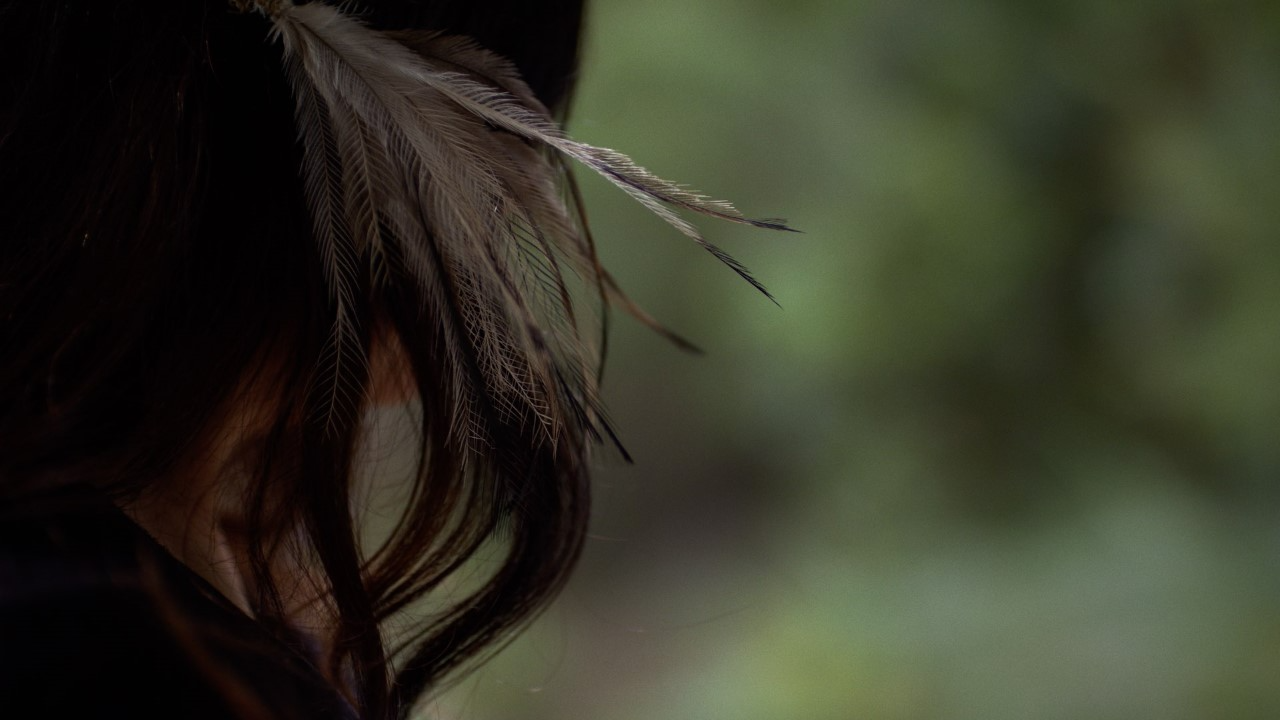
Genevieve Grieves, 2021, still from baban darrang (mother tree), Wurundjeri Country
OART1103: Working in First Peoples Contexts (University Elective)
Working in First Peoples contexts: creative partnerships and cultural production
This course has been developed by Worimi artist and educator Genevieve Grieves of GARUWA in collaboration with RMIT University. This Indigenous-led course provides opportunities for you to learn and apply knowledge and skills across a range of cultural and social frameworks, including settler-colonialism and race, that inform Australian society. You will begin to evolve a self-reflexivity that positions you in relation to these national issues as well as with regard to broader, global, First Peoples contexts. By developing your understanding of these factors in Australia, you will build a transferrable set of skills that encompasses intercultural, collaborative, self-determining approaches to working with local, national and global communities.
By considering the historical and contemporary contexts of the Australian case studies, you will expand your ideas of content production, curation, arts management and design in local, national and international contexts. The course supports professional learning and career development learning in fields and roles such as: managers in the arts, design, creative, cultural, festival, public art, and arts education industries; as well as designers, curators, cultural producers, artists, education and community workers.
For more information contact marniebadham@rmit.edu.au for more information or review the course guide.
* Grades will be published in early January which means it will not suit students completing their programs in 2022 and graduating at the December ceremony. However anyone using this course as their final credit points will be able to graduate in absentia in January 2023
Semester 1 - Masters Program Options

Caelan Renfree-Dyer, Untitled, 2017, Ceramic, Photographer: Andrew Barcham
OART1067: Introduction to Curating Contemporary Art
In this course, you will undertake a theoretical and historical examination of contemporary art curation across different contexts in Australia and overseas. Your theoretical investigation will be supported by project-based work to give you a critical and practical appreciation of the issues involved in conceptualising, developing and presenting exhibitions, including spatial thinking and planning.
NOTE: If you are enrolled in, or have previously completed VART3413, you are not eligible to complete this course.
OART1067 Course Guide
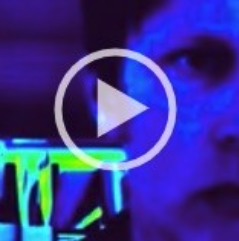
VART3614: Masters Symposium *CANCELLED*
(This course was previously titled Speaking Critically)
In this course you will experiment with and develop skills required to present a spoken narrative about your research. You will develop and expand ways to contextualise and document your projects. This audio-visual documentation will accompany your spoken presentation. Spoken presentations are a vital way for graduates to introduce their research to broader audiences and contexts. Your spoken presentation will draw on your experiences in relation to this research, functioning to describe your projects, evaluate the outcomes, and articulate future directions, possibilities, and questions.
VART3614 Course Guide
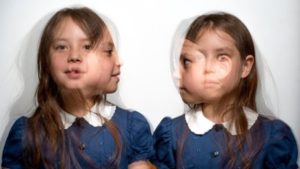
TOSHIRO SHIMADA/GETTY IMAGES
VART3616: Critical Frameworks B
So, there’s you, and then there’s everything else. With use this in mind we divide this lecture series into exploring models of subjectivity – that’s you - throughout the modern period and their various assaults on our received notions of selfhood. Of course, not everyone gets to decide for themselves who they will be, and so we explore theoretical models that have attempted to address the subject position of those who have been assigned to play ‘other’ to the privileged white male. We look at feminist art and ideas, and their heritage in post humanism as well as theories of the ‘other’ as developed through post-colonialism here and elsewhere. To address everything external to the self – that’s the everything else - we also take in a variety of models of realism over the last 170 years of art history and theory as they attempt to address the world external to our thoughts and representations and how we might approach it.
This lecture series was previously offered in Sem 1, Year 2021. If you studied Critical Frameworks in that semester, we don’t recommend you enrol in this course.
Do not enrol in Critical Frameworks A and B at the same time, as they cover the same lecture content in the same semester.
VART3616 Course Guide
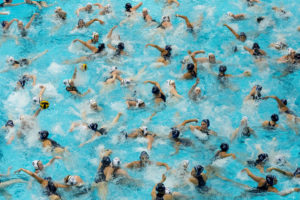
PELLE CASS 2018, ‘WATER POLO MATCH, HARVARD’, FROM THE SERIES CROWDED FIELDS. COMPOSITE PHOTOGRAPH
VART3638: Digital Imaging Strategies
Grounded in digital photography, this elective course introduces you to both foundational and advanced concepts and strategies in digital imaging. The classes foreground understanding over recipes – we want you to understand how computers handle images in order to equip you with the skills to be digitally literate creators.
VART3638 Course Guide

Caelan Renfree-Dyer, Untitled, 2017, Ceramic, Photographer: Andrew Barcham
VART3640: Internship
In this course you will participate in an internship or artist in residence program in an arts or cultural organisation, company, festival, gallery, museum or studio, through dual negotiation with the industry and School. You will be expected to work as directed by the host organisation, to address and solve real issues in an arts industry workplace environment. Students will undertake a 'self-placement' of 42 hours with a host organisation and reflect on their experiences through three key tasks and expected to meet with the co-ordinating Lecturer four times over the semester to share and discuss their experiences. Assessments include arranging an Internship agreement with an Industry Host, keeping an Internship Journal and critically reflecting upon the experience.
This is a Work Integrated Learning (WIL) course designed to facilitate a practical working relationship between you and selected arts and cultural organisations. As a self-placement students find their own industry hosts appropriate to their area of study, with support from the co-ordinating Lecturer.
Also on offer in Semester 2 2022
VART3640 Course Guide
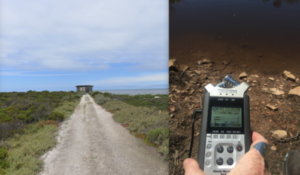
Fieldwork , Fiona Hillary
VART3709: Fieldwork *Re-scheduled Sem 2*
Please note this course will no longer be running in Semester 1 2022, it is on offer in Semester 2 2022
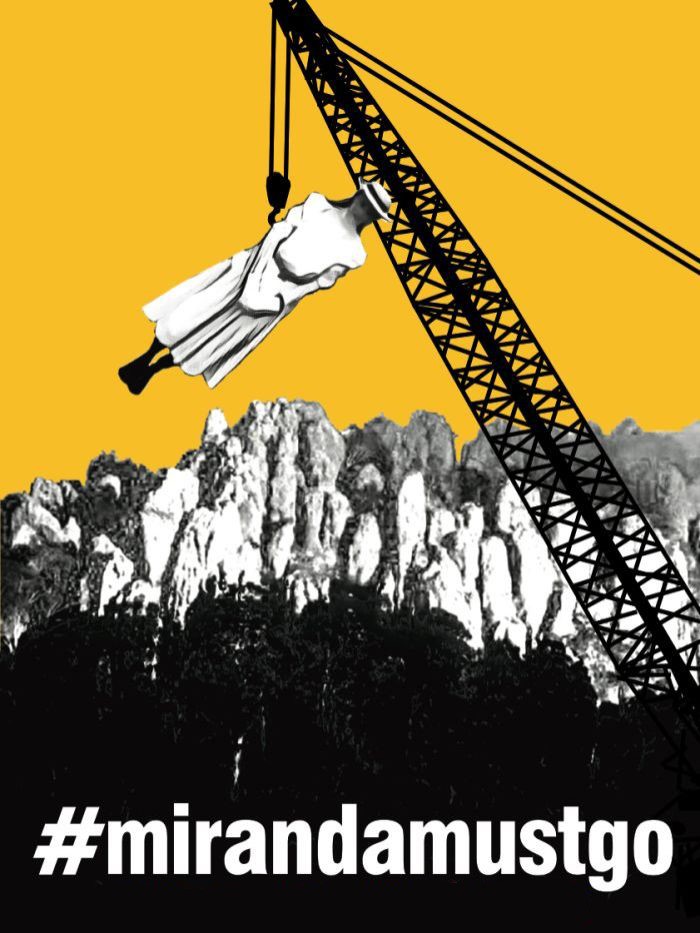
image: Amy Spears, #MirandaMustGo, c2017
VART3711 & VART3713: Themes in Contemporary Creative Practice A & B
In Semester 1 2022 Themes in Contemporary Creative Practice will consider activism, citizenship, politics and power. Exploring the political implications inherent in creative practice, Dr Torika Bolatagici will lead an exciting investigation into the power of images and the activist potential of art. Dr Bolatagici is a Fijian-Australian artist and educator who produces multidisciplinary projects centering the counter-narrative of marginalised histories and knowledges through curatorial collaboration, photography, video, installation and publication. http://www.bolatagici.com/
Themes in Contemporary Creative Practice A and B are just two different names for the same underlying theme offered. You can choose up to two themes across your program. Enrol in Themes A if this is your first Themes enrolment, or if you have previously undertaken this course, enrol in Themes B.
VART3711 Course Guide
VART3713 Course Guide

Caelan Renfree-Dyer, Untitled, 2017, Ceramic, Photographer: Andrew Barcham
VART3717: Cultural Planning and Evaluation (cancelled)
This course aims to build participant’s capacity for effective cultural development planning and in doing so achieve better outcomes. Using frameworks developed by the Cultural Development Network (CDN), Students learn an ‘evidence-based and outcomes focussed’ approach to planning that is consistent and integrated within an organisation’s planning activity, and evaluate the overall effectiveness of a plan and its activities. The Frameworks offered in this course have been developed with sector in the context of key national and international policy agendas and are informed by contemporary approaches to planning and governance and ideas about evidence-based planning.
VART3717 Course Guide
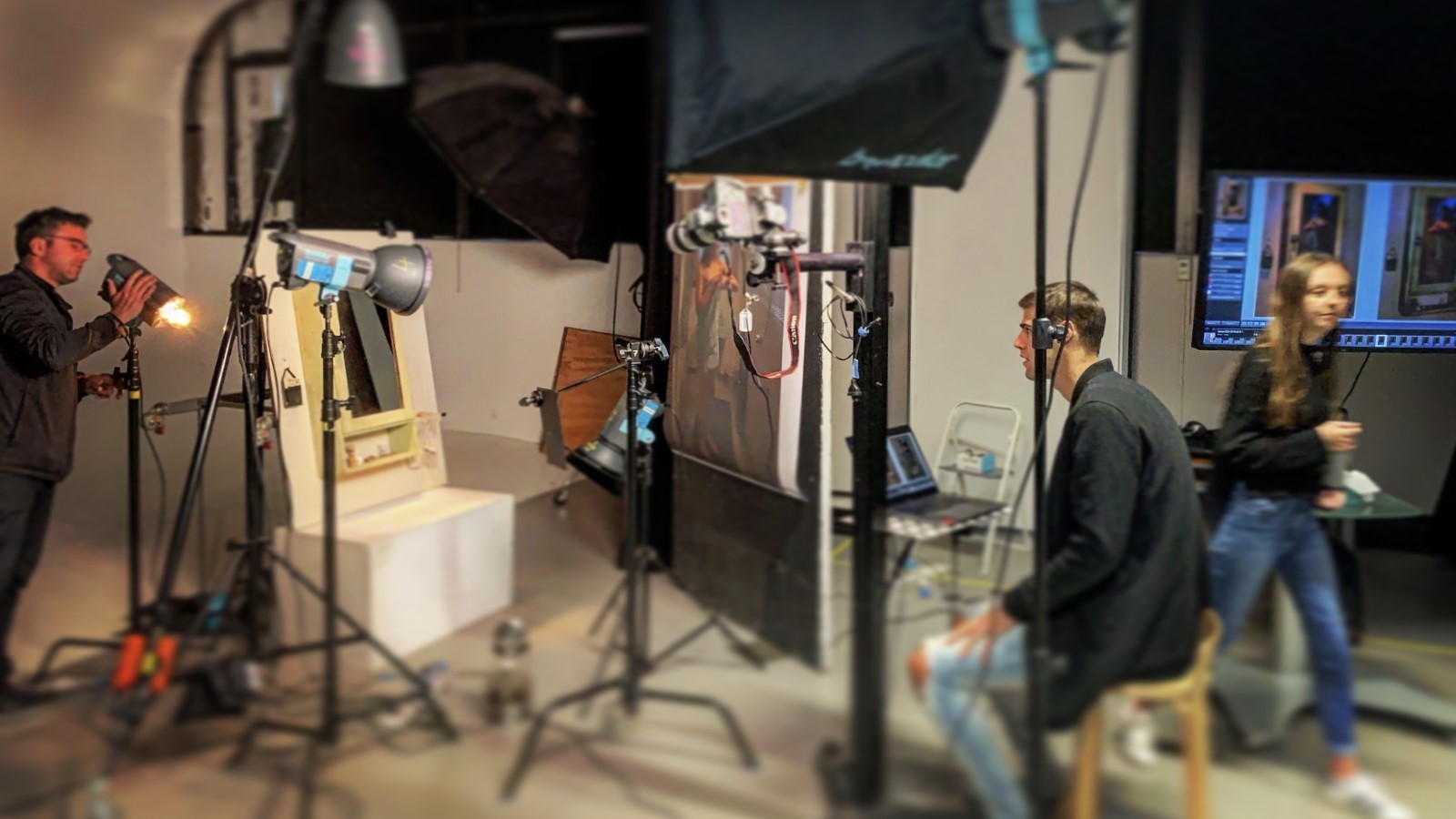
Photographic lighting workshop
VART3741: Studio Skills Specialisation
This course will enable masters' students to undertake a specialised skills development workshop offered in the relevant undergraduate program. Students may undertake this course with the approval of their program manager after consultation and academic advice. The course may be undertaken if both the student and program manager identify a skills gap that is relevant to the student’s studio project that can be addressed by undertaking a workshop offered in an undergraduate program as a vertically integrated studio course.
NOTE: Program Manager approval is required to enrol in this course, and additional conditions and practicalities need to be considered, so enrolments are not automatic. Make an appointment to discuss your needs.
VART3741 Course Guide
Semester 2 - Masters Program Options

Caelan Renfree-Dyer, Untitled, 2017, Ceramic, Photographer: Andrew Barcham
OART1066: Arts Management Fundamentals
The course will examine key aspects of national and international arts management with particular reference to arts organisations in a cross-cultural context. This will entail a consideration of current practices in Australia and overseas with respect to economic, political and socio-cultural factors. You will be introduced to issues relating to: resource and fiscal management; fund raising; policy development and implementation; entrepreneurship; and marketing and communication.
NOTE: If you are enrolled in, or have previously completed PERF1025, you are not eligible to complete this course.
OART1066 Course Guide

TOSHIRO SHIMADA/GETTY IMAGE
VART3616: Critical Frameworks B
What does it mean to mean? How does meaning arise in material culture, and how has this question been approached in the western tradition? Over the course we consider this problem from a variety of vantage points: material culture as language; material culture as feeling; material culture as an extension of the body; material culture as form. This frame allows us to take in a number of elements of history that have affected our understanding of what art does: the linguistic turn that was so influential on twentieth century-culture and thinking; the history of modernism seen through a variety of lenses; the relationship of culture to philosophy since the renaissance; and the relationship of culture to embodiment before and after feminism. We weave the threads together with themes emerging and re-emerging across the weeks to build a series of interrelated narratives and contrasting positions that problematise and deepen our relationship to our making.
NOTES:
- Do not enrol in Critical Frameworks A and B at the same time, as they cover the same lecture content in the same semester.
- This lecture series was previously offered in Sem 2, Year 2021. If you studied Critical Frameworks in that semester, we don’t recommend you enrol in this course.
VART3616 Course Guide

Caelan Renfree-Dyer, Untitled, 2017, Ceramic, Photographer: Andrew Barcham
VART3640: Internship
In this course you will participate in an internship or artist in residence program in an arts or cultural organisation, company, festival, gallery, museum or studio, through dual negotiation with the industry and School. You will be expected to work as directed by the host organisation, to address and solve real issues in an arts industry workplace environment. Students will undertake a 'self-placement' of 42 hours with a host organisation and reflect on their experiences through three key tasks and expected to meet with the co-ordinating Lecturer four times over the semester to share and discuss their experiences. Assessments include arranging an Internship agreement with an Industry Host, keeping an Internship Journal and critically reflecting upon the experience.
This is a Work Integrated Learning (WIL) course designed to facilitate a practical working relationship between you and selected arts and cultural organisations. As a self-placement students find their own industry hosts appropriate to their area of study, with support from the co-ordinating Lecturer.
Also on offer in Semester 1 2023
VART3640 Course Guide
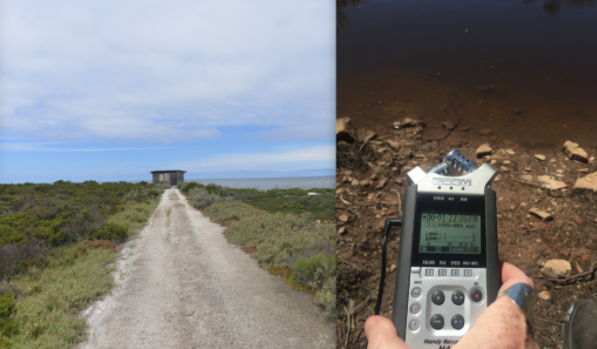
Fieldwork, Fiona Hillary
VART3709: Fieldwork
Fieldwork is a process driven elective course that encourages you as an artist/curator to explore your creative practice in response to a site. You will experience and develop methodologies that interrogate site specificity. For example, you will learn to understand the whole process of knowing a site from the journey to the site, the time spent on site, its socio-historical, cultural, environmental and political context and the ensuing impact that those experiences and knowledges can have on your creative practice. You will then learn to adapt and apply those methodologies that are appropriate for your creative development and practice.
VART3709 Course Guide

RAWPIXEL.COM VIA PEXELS, USED UNDER CREATIVE COMMONS.
VART3707: Applied Industry Engagement *CANCELLED*
Please note this course will no longer be running in Semester 2 2022
This course explores ways to engage with expanded notions of industry for creative practitioners. You will interact with a variety of voices and positions from within the art, photography and wider arts industries to contribute to your evolving relationship to professional practice.
VART3707 Course Guide.
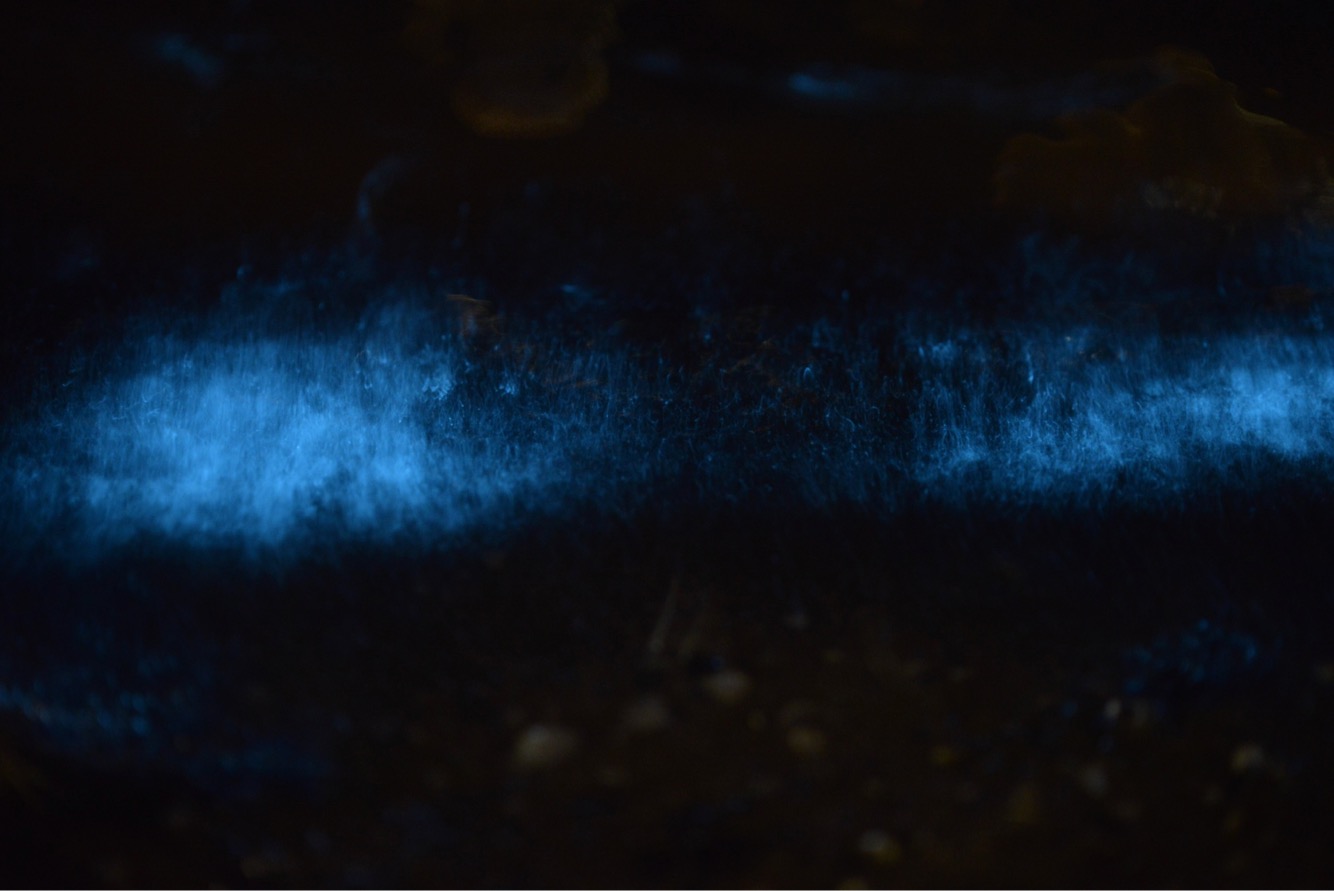
Companions in the Wrack, Fiona Hillary 2019
VART3711 & VART3713: Themes in Contemporary Creative Practice A & B
Posthumanism, Environment, New Materialism, Diffractive and Vegetal Thinking
This course will invite you to think with and through the zeitgeist of posthuman, new materialist and feminist thinkers and creative practitioners. This is an invitation to situate your practice and explore how contemporary artists are responding to new and emerging ways of thinking. Join Dr Fiona Hillary with Dr Alison Bennett and their contemporaries in this creative exploration of ‘staying with the trouble’.
If you want to enrol in the course, but it is showing fully enrolled in your Enrolment Online, please contact art.postgradadmin@rmit.edu.au to enquire if a space might be available. Sometimes this course may show as fully enrolled in Enrolment Online, despite enrolment spaces being available.
VART3711 Course Guide
VART3713 Course Guide

Caelan Renfree-Dyer, Untitled, 2017, Ceramic, Photographer: Andrew Barcham
VART3717: Cultural Planning and Evaluation
This course aims to build participant’s capacity for effective cultural development planning and in doing so achieve better outcomes. Using frameworks developed by the Cultural Development Network (CDN), Students learn an ‘evidence-based and outcomes focussed’ approach to planning that is consistent and integrated within an organisation’s planning activity, and evaluate the overall effectiveness of a plan and its activities. The Frameworks offered in this course have been developed with sector in the context of key national and international policy agendas and are informed by contemporary approaches to planning and governance and ideas about evidence-based planning.
VART3717 Course Guide
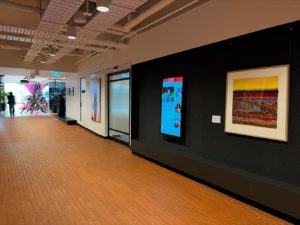
Wall + screen based works + installation view, Alfred Education and Innovation Hub, Alfred Hospital
VART3739 Industry Partnered Studio (University Elective)
The COVID-19 pandemic has had a huge impact across our communities and especially for people who work in health care organisations and hospitals. This university studio course offers the opportunity to create projects for our health care industry partner, Alfred Health, and is designed for fine arts, photography, creative writing, design, health science, care, media and communications and STEM students interested in creative and collaborative responses to health and wellbeing.
For this studio course, you will develop and realise creative projects in teams or independently for presentation in the Innovation and Education Hub at the Alfred Hospital in November 2022.
Projects will respond to a project brief focusing on a reflection of COVID-19, through an exploration of mental health and across topics such as fatigue, anxiety, insomnia, deep rest, rejuvenation and recovery. Projects will be developed and completed in consultation with our Alfred Health partner. Students will gain knowledge about the cultural, spatial and health impacts of creative projects for healthcare settings, experience with working to a project brief for an industry partner and with team approaches to project work.
Projects will be undertaken independently or collaboratively through diverse mediums and presented as wall-based works, object-based works (for presentation in glass cabinets), video, photomedia or interactive media works (for screens/touch screen), soundscapes and podcasts (for presentation in bathrooms) and installations (some floor and ceiling space available in the Alfred Hub). Outcomes of the course can include speculative proof of concept designs or fully realised projects for presentation at the Alfred Innovation and Education Hub. Exhibition of the artworks will be included in RMIT's programming for the 2022 Big Anxiety Festival.

Photographic lighting workshop
VART3741 Studio Skills Specilisation
This course will enable masters' students to undertake a specialised skills development workshop offered in the relevant undergraduate program. Students may undertake this course with the approval of their program manager after consultation and academic advice. The course may be undertaken if both the student and program manager identify a skills gap that is relevant to the student’s studio project that can be addressed by undertaking a workshop offered in an undergraduate program as a vertically integrated studio course.
NOTES:
Program Manager approval (and supervisor approval, if you have one) is required to enrol in this course, and additional conditions and practicalities need to be considered, so enrolments are not automatically open. Please contact your supervisor and program manager to start the conversation.
Following is an overview of the process for this course:
- Workshop information is usually released much later than information about other Option courses, we can’t control this timeline differently. You may want to enrol in your second-choice Option course, so not to lose a space there, and drop this course if you are successful in enrolling in Studio Skills Specialisation.
- We will alert the student body when Workshops have been announced/updated.
- When workshops are announced, you need to check if there are any courses you feel would benefit your practical skills, specifically related to your developing Masters studio work/project. To be eligible to enrol, you need to ensure that a workshop is relevant to your particular practice and needs. These workshops are not designed to simply try out new media or techniques that are unrelated, or only tangentially-related, to your Masters project.
- Next, check if the course timetabling makes it possible for you to enrol, or if there will be a clash. If there is a clash, please consult with your program manager. Because these are undergraduate workshops, timing may not always work out.
- Next, if you have a supervisor, ask them if they think the Workshop you are interested would support your technical skills and your developing Masters project.
- Then contact your program manager to register your interest.
- If everyone agrees to progress, your program manager will inquire if it is possible for you to enrol in the course. Enrolment permission is then subject to a number of conditions and practicalities outside our control, and can’t be assured.
- If we receive permission for you to enrol, you will be contacted with instructions on how to enrol.
- Again, to start a conversation about this course, please contact your program manager and supervisor.
You can only enrol in 1 Studio Skills Specialisation course during your Masters program.
Preferencing processes listed on the undergraduate pages are not relevant for Masters students, please follow the process above.
Fine Art - Workshops
Photography - Photographic Lighting
Photography - Photographic Fine Print
VART3741 Course Guide